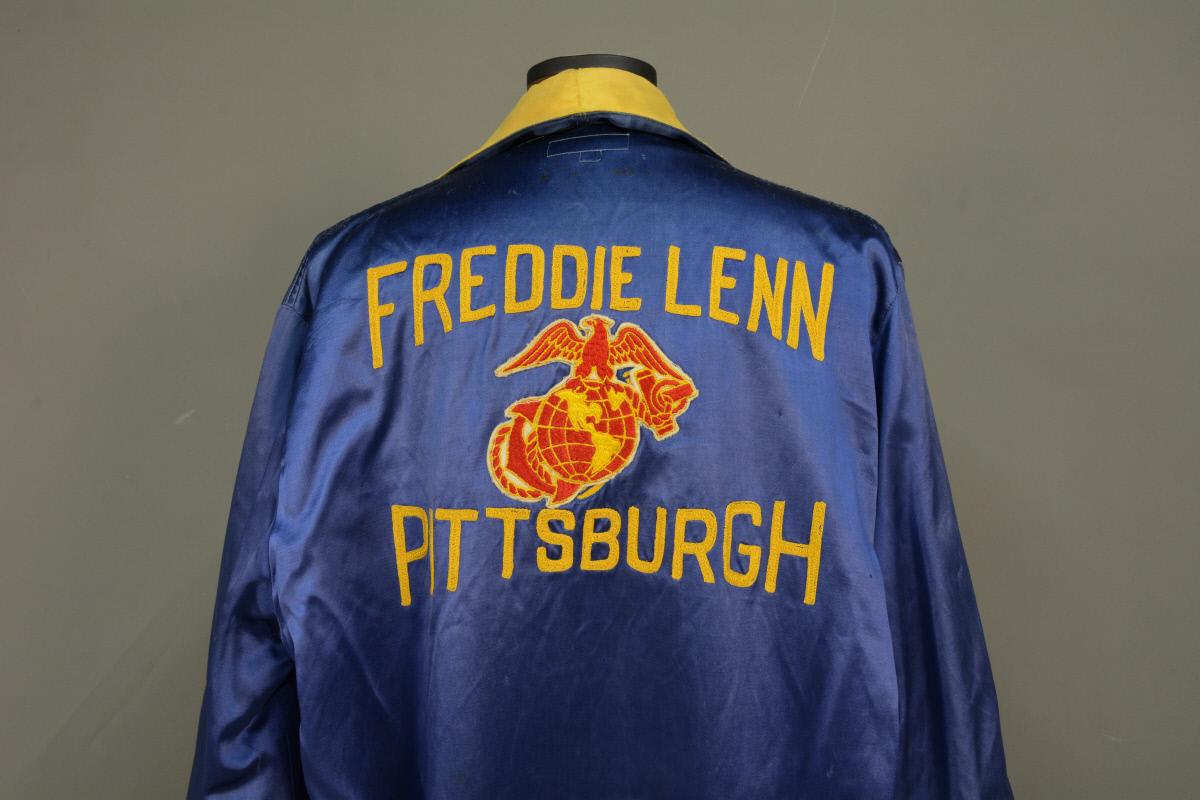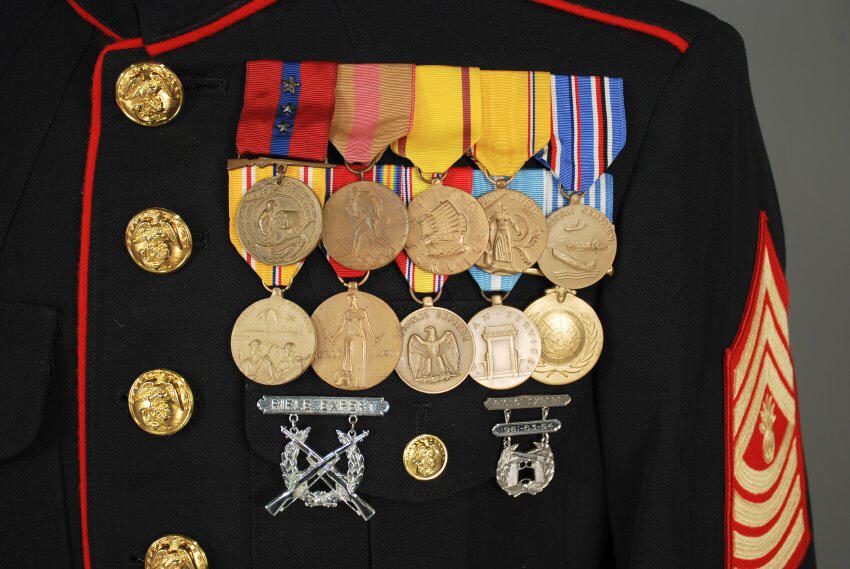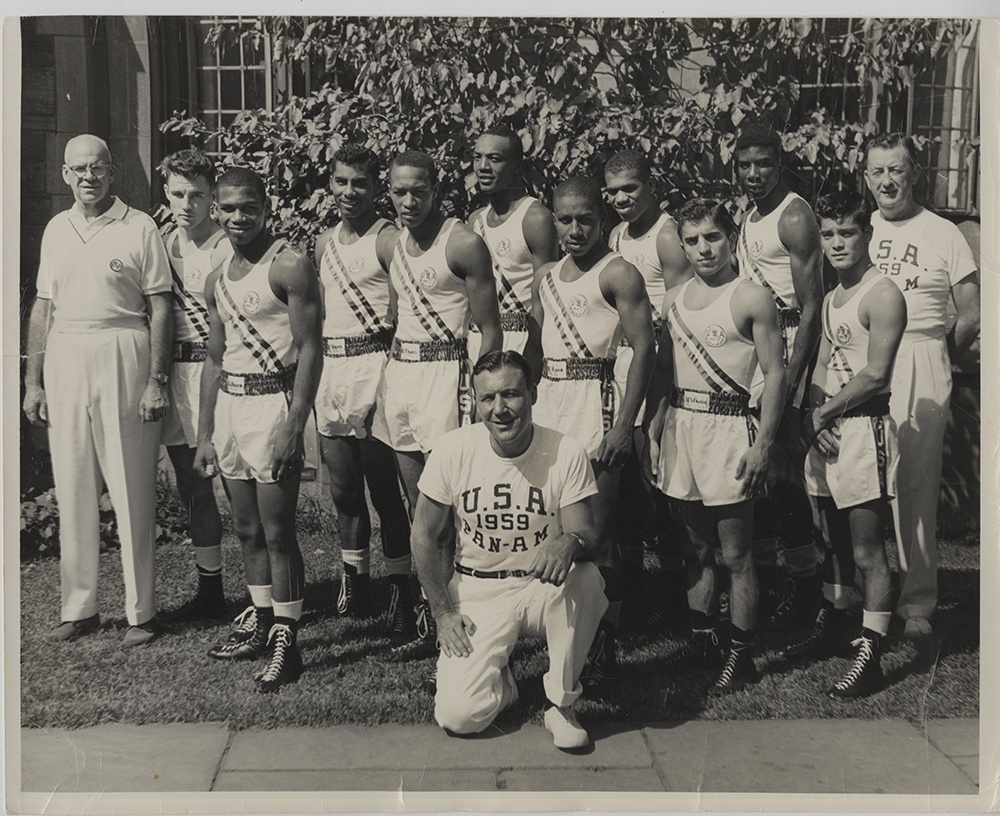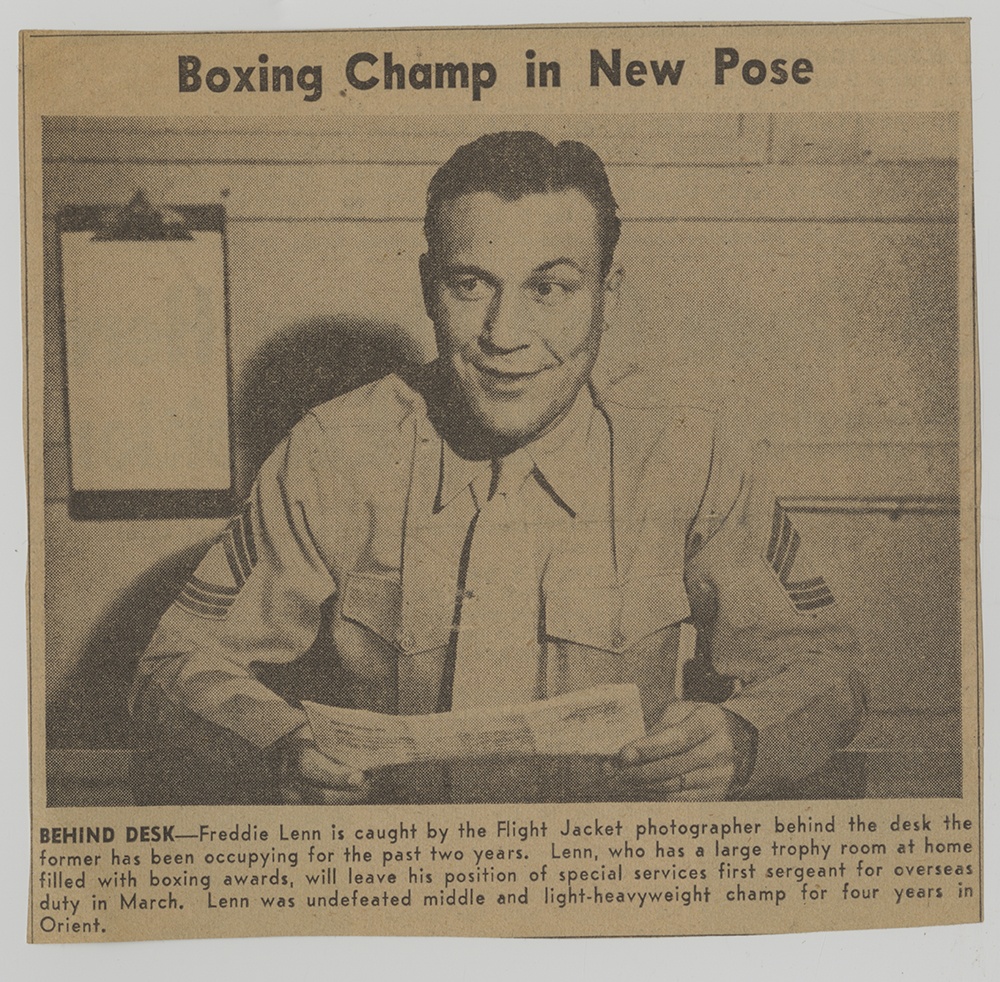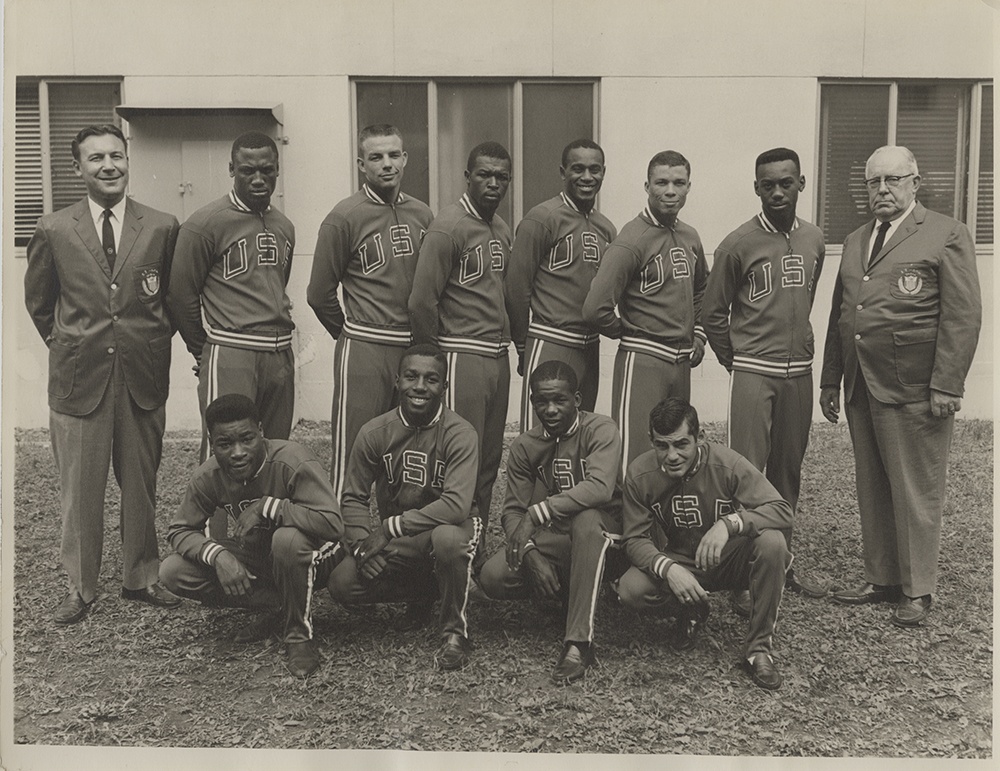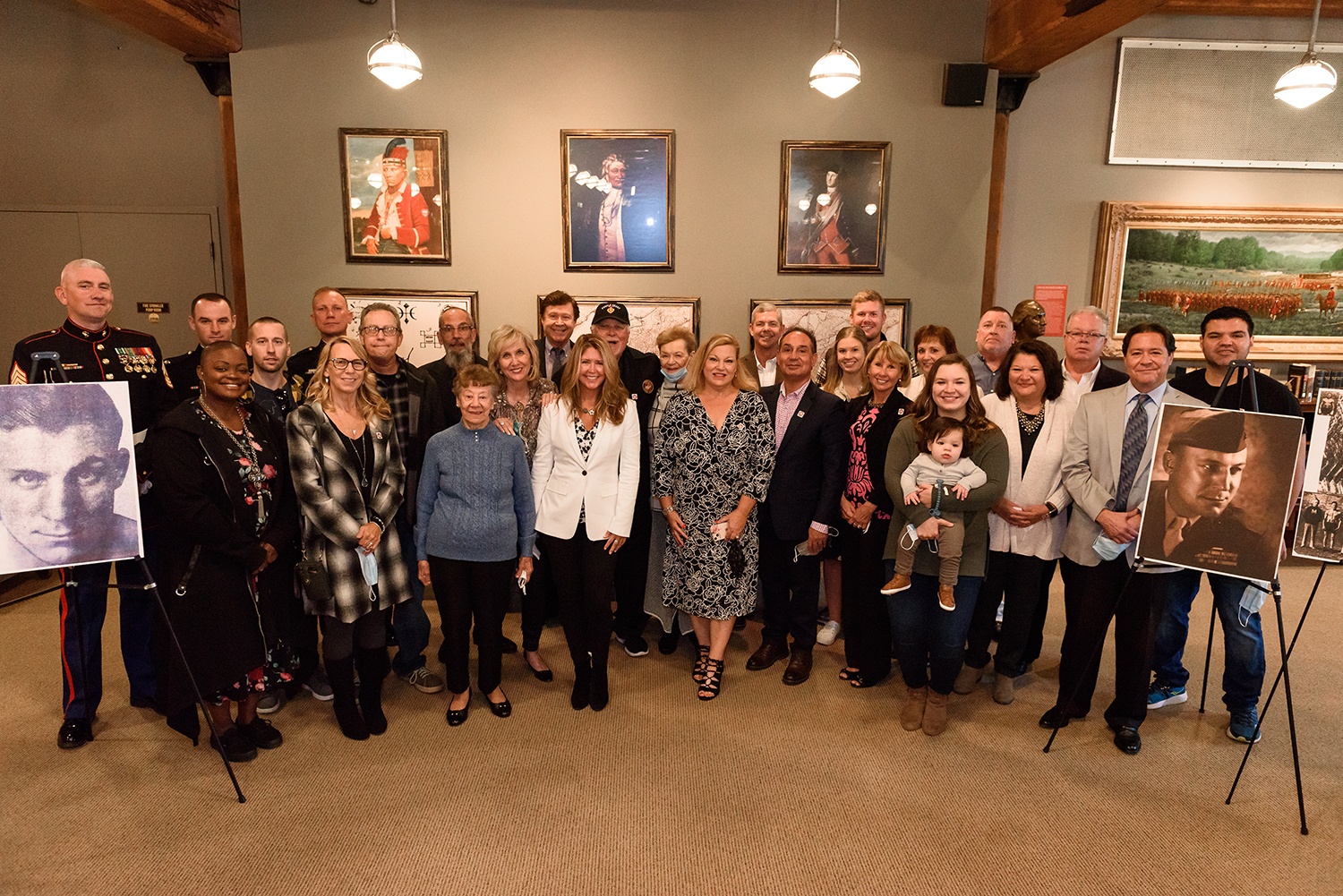Fred Lenn fought in two arenas—as a Marine serving during World War II and Korea, and in the ring as a champion amateur and professional boxer. The second of nine children born to Polish immigrant parents in 1914, Lenn grew up on Pittsburgh’s South Side. Christened Walter Frederick Lenkowski at St. Stanislaus Polish Catholic Church in the Strip District, he learned to box from the social activist priest, Father Cox. Ordained in 1911, Cox first served as the assistant pastor at Epiphany Church in the lower Hill District. He also worked as the superintendent of the Pittsburgh Lyceum, a social and athletic club. There he oversaw the theater and arts program and coached the athletic teams. Noted boxers such as Harry Greb and Billy Conn trained there—Father Cox is said to have given light heavyweight champ Greb his first lessons in the ring.
By 1930, Lenn had begun to compete as an amateur, boxing out of the Frawley Athletic Club on Mount Washington. After achieving some success in Golden Gloves boxing, Lenn enlisted as a Marine in 1933. He kept up his sporting career, playing football for the Marines’ team at Parris Island. After deploying to China in 1934 as a member of the Fourth Marines, Lenn served with the Military Police in Shanghai. He also continued his boxing career, successfully capturing the middleweight and then light heavyweight championships of the Far East.
Lenn returned to the U.S. in 1936 and worked as a Marine recruiter in Pittsburgh. In 1939 he married Neilia Deczewski, known to the family as Sally. He and Sally rented a home in the Southside Flats on Wright Way, not far from his parents, who lived on Josephine Street. Fred and Sally had a son, Fred Jr., in 1940 and a daughter, Kathleen, followed three years later. After signing with Pittsburgh promoters Art Rooney and Barney McGinley, Lenn began to box professionally. He achieved some success, eventually compiling a winning record.
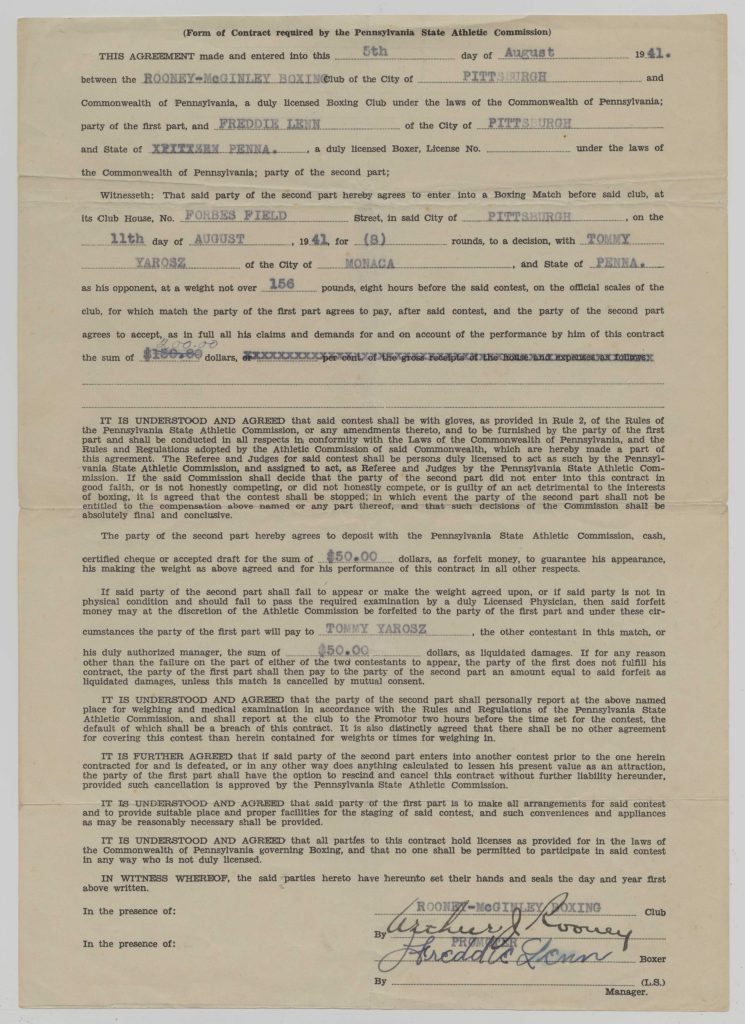
On September 30, 1941, just weeks before Pearl Harbor, Lenn reentered active service, working for two years as a Marine recruiter in Philadelphia before shipping out to the South Pacific in 1943. After two years of foreign service, he returned to the United States in July 1945. After the war, Lenn began his coaching career in the Marines at Quantico where he had incredible success, capturing 26 of 28 team titles and more than 200 individual titles. Stationed at Camp Pendleton in California, he continued to coach through the 1950s while also serving during the Korean War.
Lenn’s success as a trainer and coach did not go unnoticed. Called upon to work with the U.S. team as a trainer for the Pan American games in 1959-60, he also worked with the 1960 Olympic team. In 1964, Master Sergeant Lenn was named Head Coach of the U.S. Olympic boxing team. Competing in Tokyo, members of the team won three bronze medals and Joe Frazier captured gold for the U.S. The first military man given such an honor, Ring Magazine named Lenn, “Olympic Coach Supreme.”
Lenn retired from the Marines in 1968 after 33 years of service. He and Sally settled in Oakdale, Pa., where he continued to be recognized for his achievements until he passed away in 1993 at age 78. A decorated veteran, Lenn left a legacy as a boxer and especially as a coach and mentor—training champions in the ring and instilling the values of the Marine Corps, honor, courage, and commitment in those he led. He is remembered as a man of grit and integrity, a Pittsburgh champion inside the ring and out.
